Crisis intervention is emergency short-term psychological and social assistance targeted at a victim’s most urgent needs. The goals of crisesCrisis intervention areaims at:
- Protection: trafficked persons are accommodated in a safe and secure location;
- Prevention: quick intervention prevents the development of more severe psychological and social problems for the victims;
- Support: psychological work reduces the pain and stress associated with the trafficking experience and enhances the possibilities for coping.
Crisis intervention is carried out in line with criteria and standards set out in the NRM.
Step 1. Emergency accommodation in a crisis centre or shelter for victims of trafficking
The trafficked person is accommodated temporarily at a centre/shelter in the following circumstances:
- The victim’s return to their usual environment may pose certain risks.
- The victim is in a bad emotional condition and needs time to recover.
- The victim (or their children if they are together) need specialised care which can be provided either in the centre or in another organisation nearby (e.g. in the same place).
- The victim is availing of her right to a reflection period.
- The victim is waiting for identity documents to be issued/reissued.
- The victim is testifying to the police or prosecution or is awaiting investigation procedures.
- The victim has no personal resources – no place to stay, no home, no family or close relatives to stay with.
- Others.
The stay is voluntary. Upon admission, when the trafficked person is capable to talk, an interview is conducted to update the risk and needs assessment in view of the available support programmes and services in the centre and the community:
- An individual bed (including beds for the children if they are accompanying the victim);
- Food;
- Bathroom and toilet;
- Bathroom accessories;
- Items of immediate necessity;
- Others.
The centre/shelter staff contact immediately all necessary services and organisations that can help in meeting the trafficked person’s emergency needs. When more specialists from different areas need to be involved with a case, a multidisciplinary team is set up. It comprises everyone involved with the case. The shelter case manager coordinates the work of team – organises meetings, plans actions, acts as a liaison between the victim and the specialists, and ensures information flow among the participants.
Unless the place is a closed centre/shelter, upon admission of the trafficked person and based on the risk assessment, a safety regime is established. Depending on the risk level, it can be:
- Open – the trafficked person may leave the centre and come back respecting the internal regulations of the centre. The victim’s contacts with outside people are not restricted;
- Semi-open – the trafficked person is not allowed to visit certain places or meet certain people. The victim may go out if accompanied by a member of the centre/shelter team;
- Closed – the trafficked person may not leave the premises of the centre.
The safety regime is negotiated with the trafficked person upon their arrival in the centre and the victim commits to observe it.
Step 2. Provision of emergency psychological support
In a safe and supporting environment, the trafficked person receives support to overcome the shock, tension, and strong emotions. The victim has the opportunity to become familiar with options for coping and to make a plan of the practical steps that need to be taken in order for the victim to regain balance. Every victim accommodated at a centre/shelter has the possibility to talk to a counsellor individually.
If the centre/shelter cannot provide a counsellor, the person is referred to programmes which provide psychological counselling and crisis intervention.
Psychological counselling is voluntary and is included in the individual action plan. The counsellor agrees together with the trafficked person on the number, frequency, and time of the sessions for emergency psychological support.
Step 3. Provision of emergency social, medical, and humanitarian help
Victims of trafficking need intense social support to meet their most urgent needs, as described in the support plan.
- Medical needs
In the event of an emergency, the victim is accommodated via the Emergency Medical Care system.
When the victim has to be admitted in a hospital or receive non-emergency medical services and the victim’s health insurance rights have been suspended, the latter have to be restored first as per the Health Insurance Act.
If the victim’s health insurance rights have been suspended, the victim pays the value of the medical assistance provided. If the respective conditions are in place, pursuant to Decree No. 17 of the Council of Ministers of 2007 determining the terms and procedure to spend earmarked funds for diagnostics and hospital treatment of persons who do not have income and/or personal property ensuring their personal participation in the health insurance process (promulgated, SG, issue 13 of 2007), medical assistance is paid from the MLSP budget. This takes place through:
- Payment of the health insurance contributions due as per Article 109, paragraph 2 of the Health Insurance Act;
- Applying the Social Assistance Act (see Step 7 of Measure 3.1.).
- Issuing identity documents
New personal documents are issued following the procedure laid down in the Bulgarian Identity Documents Act (BIDA). The trafficked person submits an application to the MoI as per their permanent address. The application is signed by the person in the presence of an authorised official. Pursuant to BIDA, a person is not required to appear in person to submit an application for the issuance of Bulgarian identity documents if the necessary biometric data was obtained not earlier than 4 years and 11 months prior to the date of the application. The identity documents are received in person or, in some cases (if the application was submitted in person), by an authorised person who bears an express notarised power of attorney.
